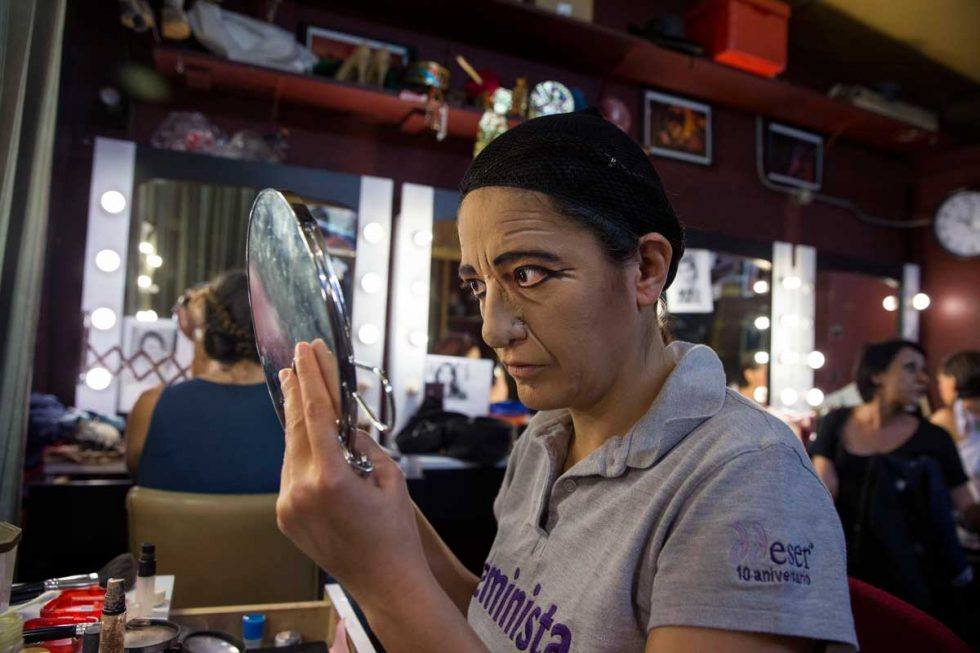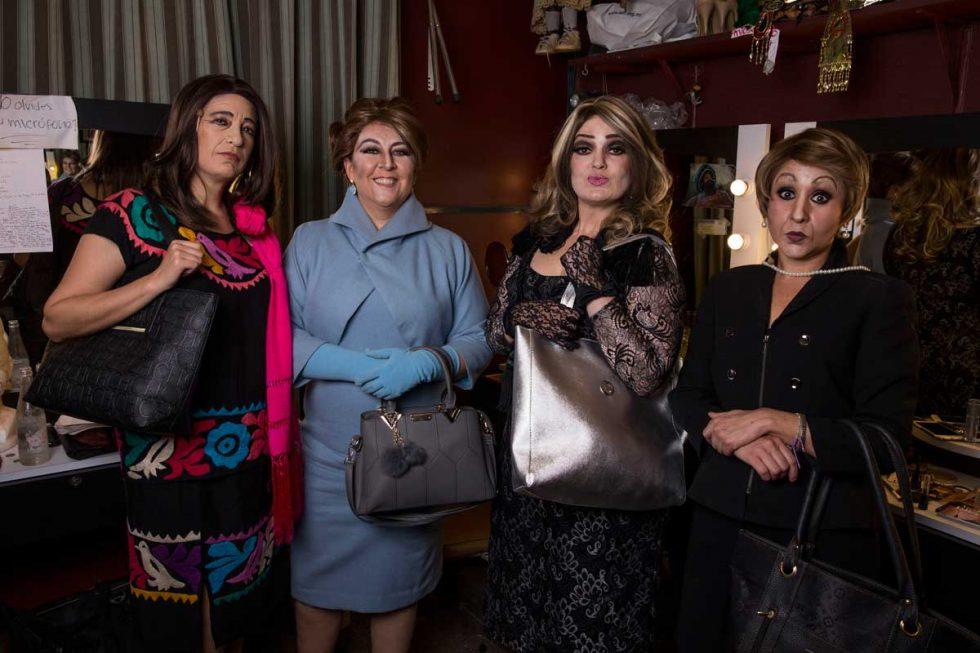The show is about to begin at El Vicio Theater, one of Mexico City’s historic cabaret theaters. Servers are passing around glasses of wine and tequila in a warm room with overhead ceiling fans as guests trickle in for the late night show.
As the room fills up, the lights dim and the actresses take the stage. Tonight, they are performing a parody of various Mexican first ladies who have courted controversy and scandal through their complicity in government corruption and excess. The actresses alternate between comedic songs, expressive dances and animated gestures.
Since 2000, AJWS grantee Las Reinas Chulas, a Mexican feminist cabaret troupe, has been using the power of theater to ignite debate and activism in a country where people face formidable challenges such as discrimination, violence and injustice. Las Reinas Chulas—loosely translated from Spanish as “the badass queens”—use their stage to spotlight contemporary and sometimes contentious human rights themes, such as discrimination, sexism, homophobia and government corruption.
“Our performance is political,” explained one of Las Reinas’ founding members. “We see the cabaret as a way to highlight important societal issues and create a space where people can think and reflect.”
Over the years, Las Reinas has reached thousands of people and a range of audiences from artists and academics to students and thought leaders, helping change hearts and minds on sensitive topics, and gaining acclaim in the process. Last year, Mexico’s Human Rights Commission of the Federal District recognized the group for its initiatives and achievements in building a culture of respect for women’s rights. And in 2014, the theater company received the medal of cultural and artistic merit from Mexico City’s Legislative Assembly. The troupe has performed in cities around the world, including New York, Chicago, Buenos Aires, Sao Paulo, Bogota, Copenhagen, Madrid and Berlin.
Here is a glimpse into their work.
All photos by Jonathan Torgovnik
AJWS’s work in countries and communities changes over time, responding to the evolving needs of partner organizations and the people they serve. To learn where AJWS is supporting activists and social justice movements today, please see Where We Work.








